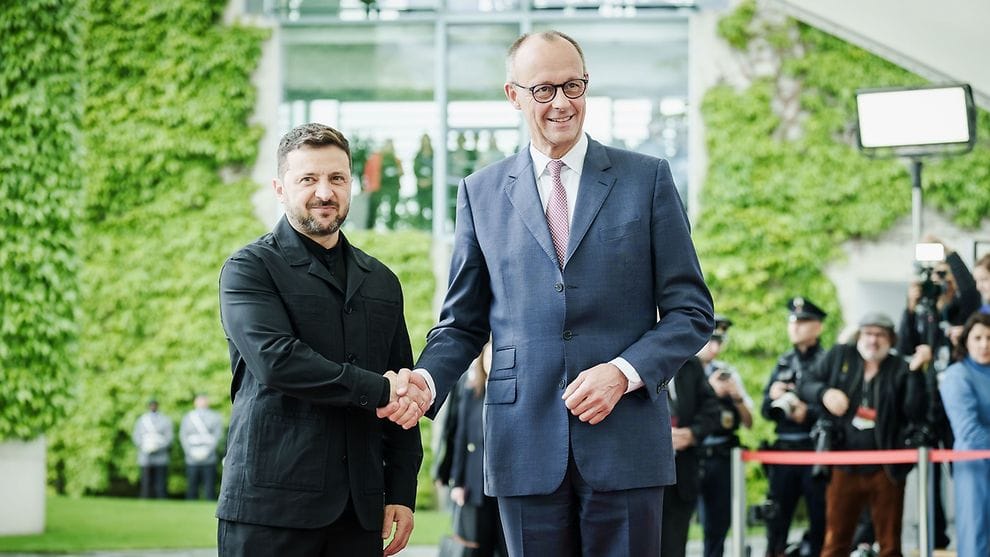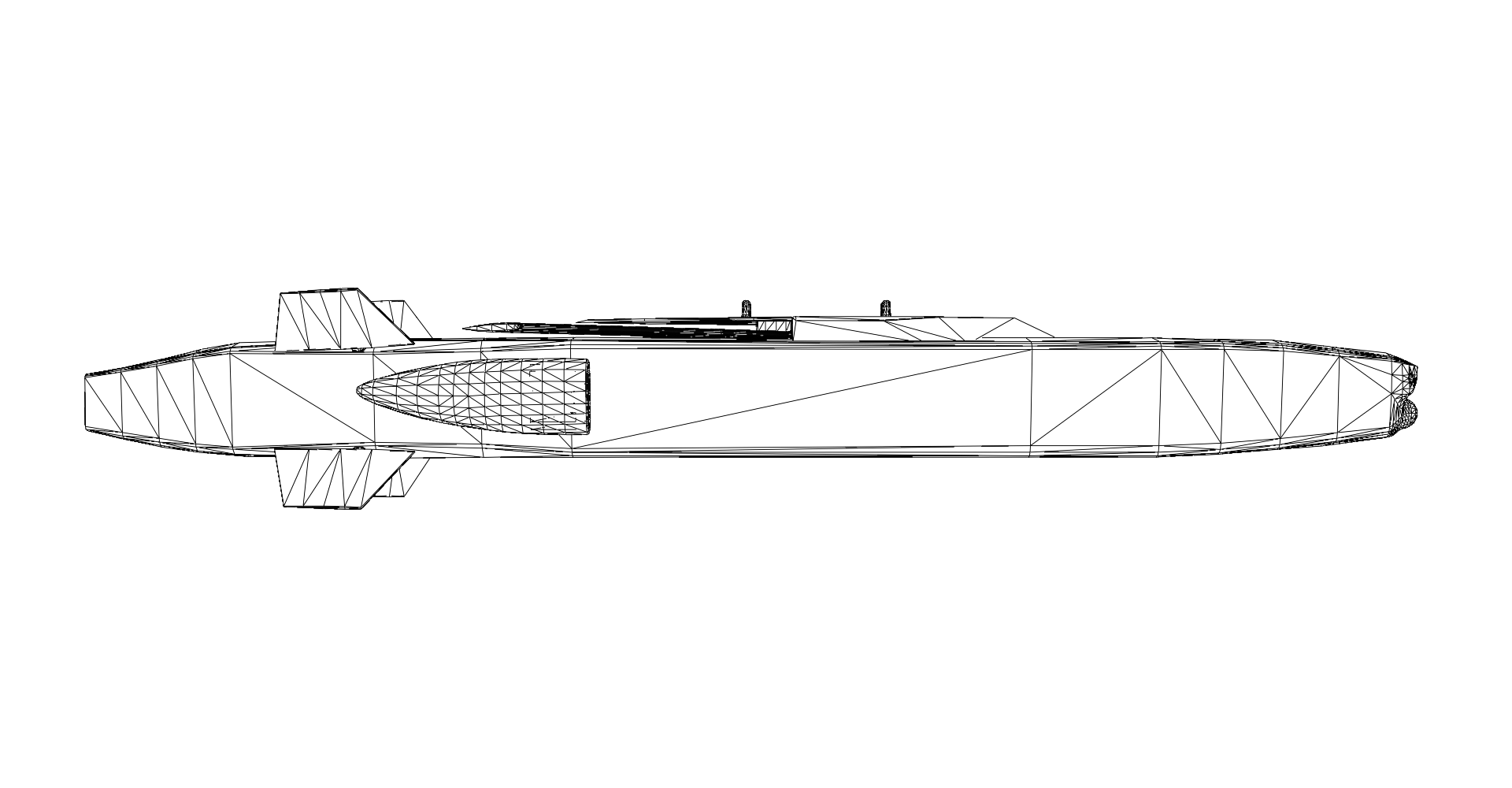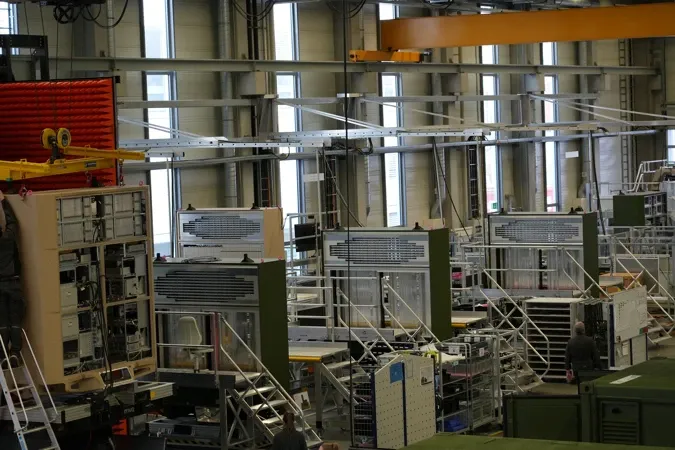Germany-Ukraine Weapons Pact Signals Deep-Strike Shift: Co-Production, No Red Lines, Taurus
From vague pledges to industrial cooperation—Chancellor Merz and President Zelenskyy unveil a new defense alliance, sidestep direct Taurus confirmation, and reshape the debate on long-range deterrence.

Germany-Ukraine signed a weapons pact for joint long-range weapons production. No explicit Taurus missile confirmation, but range limits lifted. Deal includes joint missile production. Aims to build advanced systems in Ukraine and Germany by year-end. Focus: fast scalability, sovereignty, deep-strike capability. No specs yet. Taurus integration not confirmed but likely in scope.
Introduction: A Pact Without a Name
Shortly after Chancellor Friedrich Merz lifted Germany’s self-imposed range restrictions on weapons deliveries to Ukraine, Berlin has taken another decisive step. In a high-profile visit by Ukrainian President Volodymyr Zelenskyy, both governments unveiled a new weapons alliance—focused on joint development and production of long-range strike capabilities. While the controversial Taurus missile remains unconfirmed, the agreement positions Germany as a strategic enabler of Ukraine's future deep-strike capacity. This article breaks down what has changed, what remains murky, and why the timing matters.
The Berlin Visit: Weapons Alliance, No Red Lines
On May 28, 2025, Chancellor Merz and President Zelenskyy stood side by side in Berlin to announce the next phase of bilateral cooperation—building on Merz’s earlier pledge to lift range restrictions and now formalized through a weapons alliance focused on industrial integration. The deal, signed by Defense Ministers Boris Pistorius and Rustem Umerov, includes industrial collaboration and the promise of producing significant quantities of advanced weapons systems before year’s end.
While no technical specifications were disclosed, Merz emphasized that "there will be no range restrictions," echoing his WDR Europaforum statement that Ukraine must be allowed to strike military targets across borders. Zelenskyy confirmed the alliance would finance existing Ukrainian projects and potentially expand production in Germany. Yet neither leader directly confirmed whether Taurus cruise missiles are part of the package.

Taurus: Still in Limbo, Still Central
In an interview with ZDF, Merz deflected questions about Taurus delivery timelines, citing long training cycles: "If we were to deliver it in six months or a year, it would be of no use to Ukraine today." Zelenskyy, however, revealed in comments to RTL that he discussed the matter with Merz during a private Chancellery meeting. "We are working in this direction," he said, adding that while he could not disclose details, the trajectory is positive.
Thus, Taurus remains the metonym for Berlin's broader hesitancy—still undecided, still symbolically potent. Merz appears to be pursuing a dual strategy: removing all policy obstacles to delivery while avoiding a declarative announcement.
SPD–CDU Coalition Fault Lines
The joint announcement masks persistent coalition disagreements. Vice-Chancellor Lars Klingbeil (SPD) has continued to voice skepticism, recently stating that no new coalition decision had been made beyond prior understandings. Foreign policy expert Claudia Major noted that Merz’s framing is largely rhetorical, not operational: "There will be no delivery of Taurus," she predicted, warning of heightened expectations.
Retired Colonel Wolfgang Richter offered a more critical view: lifting strike limits changes little in the Donbas if not accompanied by stronger air defenses. He suggested that ambiguity around Taurus also reflects coalition indecision rather than strategic clarity.
Industrial Policy as Deterrence
According to reporting by RND and Die Welt, Germany's pledge of €5 billion in military support for Ukraine includes air defense systems, ammunition, and likely long-range strike capabilities. Beyond the financial dimension, Berlin is moving toward an industrial model of deterrence: jointly manufacturing missiles and other systems with Ukraine. This may offer faster scalability and greater operational sovereignty for Kyiv.
Merz also pledged to finance part of Ukraine’s Starlink coverage—a move with critical battlefield implications. While not equivalent to a Taurus delivery, the industrial alliance signals a more embedded, long-term German role in Ukrainian defense.
Russian and Domestic Reactions
The Kremlin responded with characteristic hostility. According to reporting by dpa and Stern, Press Secretary Dmitry Peskov accused Germany of "forcing the Ukrainians to continue fighting," framing the weapons pact as evidence of German belligerence. Russian Foreign Minister Lavrov added, in remarks cited by Russian state media and echoed in German press coverage, that lifting range limits amounted to escalation.
Domestically, CDU figures such as Roderich Kiesewetter have criticized the lack of specificity in arms aid, while voices like Armin Laschet have called for establishing direct communication lines with Moscow, anticipating further geopolitical turbulence should the U.S. role diminish.
Strategic Outlook: Summer Offensives and Strike Depth
With summer approaching, Ukraine is preparing new operations that could benefit from extended-range precision systems. While Taurus remains absent from official shipment lists, Germany is widely expected to approve a delivery of 100–150 Taurus missiles under conditions of operational secrecy. Ukrainian pilots, already trained on Storm Shadow, would require minimal adjustment to operate Taurus.
If delivered, Taurus missiles would allow Ukraine to target Russian supply nodes, airbases, and bridges beyond the reach of current systems. Their potential use may be detected first not through announcements but through battlefield effects.
Q: Can Ukrainian Su-24s reliably launch Taurus missiles?
A: Technically feasible. Ukraine previously integrated Storm Shadow/SCALP onto Su-24M platforms. Taurus is airframe-compatible in size and drop method. Software adaptation is likely ongoing.
Q: What targets could Taurus enable Ukraine to strike?
A: Bridges to Crimea, hardened depots in Luhansk, airbases in Belgorod. Its 500 km range and bunker-penetrating warhead make it ideal for interdiction of Russian C2 and logistics infrastructure.
Q: What are the operational risks of Taurus deployment?
A: Escalation concerns if strikes hit targets deep in Russia; potential need for German technical support could trigger legal/political constraints on Berlin’s involvement.
Q: Is there precedent for silent delivery?
A: Yes. Germany withheld confirmation on IRIS-T and other systems until after deployment. Merz’s policy of strategic ambiguity suggests Taurus may arrive unannounced.
Q: What limits the scale of Taurus impact?
A: Stockpile size (~600 units, only ~150 immediately usable), training pipeline, and political consensus. Impact depends on volume and targeting discipline.
- Ukraine has delivery platforms (Su-24M)
- Taurus adds deep interdiction capability
- Secrecy suggests covert delivery is possible
- Impact hinges on stock size + political will
Conclusion: Beyond Taurus
Germany’s weapons pact with Ukraine builds on the recent range policy reversal to mark a structural shift: from individual transfers to systemic defense integration. Merz’s government has redefined strategic ambiguity—not as indecision, but as operational discretion. Whether or not Taurus missiles are delivered tomorrow, the architecture for long-range deterrence is being built today.
In the long arc of Germany's Zeitenwende, this may prove the most consequential phase yet.
For Institutional Access
To request pre-publication analysis, contact: editorial@desk.grosswald.org





